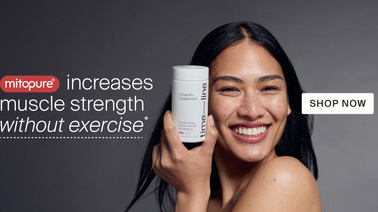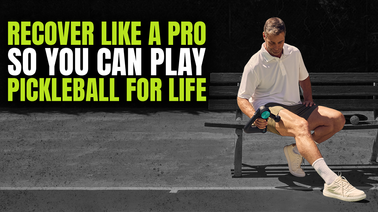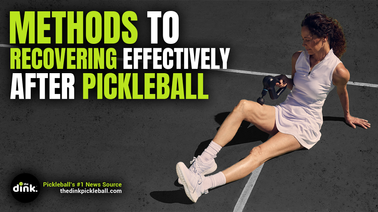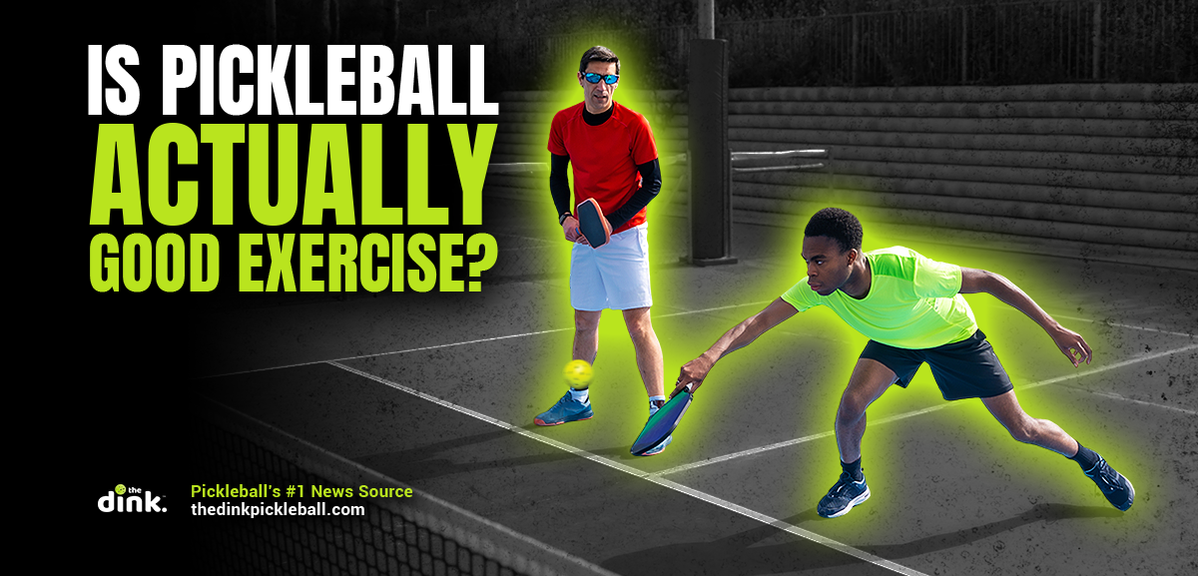
Pickleball's popularity has surged in recent years, particularly among older athletes. Its appeal is not just limited to its low barrier to entry, but also its ability to provide a decent workout.
We’ll explore why pickleball is an excellent exercise choice, compare it to other sports, and share some tips on how to prevent injury while playing.
What makes pickleball a good exercise choice
Exercise is considered "any activity requiring physical effort to sustain or improve health and fitness."
No matter what physical shape you're in, playing pickleball is a great way to get more exercise.
How many calories does playing pickleball burn?
Though the numbers vary slightly by source, and you have to take the individual into account, the PPA Tour states that:
"A 150-pound person burns an estimated 250-350 calories playing a casual or recreational game. In a moderately intense session, with more movement, faster pace, and longer rallies, that same person will burn approximately 350-450 calories in an hour."
Most smartwatches now can track what you burn, as many offer a pickleball workout feature that you can activate while playing.
Of course, calories are just one way to measure the health benefits of pickleball.
Weight loss from pickleball
Several stories have been told of people who lost a lot of weight while playing pickleball (like this story from Selkirk).
I can attest to this transformation from my own personal experience. I've lost 130 pounds using pickleball as my primary source of exercise. Not only can I chase down lobs much easier now, but I'm able to walk through a zoo holding my infant son without needing to rest every 20 minutes.

That is a huge win in and of itself.
Playing pickleball longer means more benefits over time
Pickleball stands out as exercise because it offers a unique blend of cardiovascular, muscular, and mental benefits that may surpass those of more traditional sports.
Even though pickleball is played on a smaller court than tennis or basketball – which means less running or sprinting – it encourages quick, lateral movements. These movements offer a full-body workout that keeps you engaged and challenged no matter your level of fitness.
Cardiovascular health
According to the Cleveland Clinic, playing pickleball elevates your heart rate, providing an excellent cardiovascular workout. One study of adults over 50 found that more than 70 percent of their playing time put them in a moderate to vigorous heart rate zone.
This zone is ideal for those looking to push themselves physically without overdoing it. It can lead to better heart and lung health and improved weight management.
Improved muscle strength
While you're not going to win a bodybuilding contest by just playing pickleball, it can help add or maintain muscle strength by forcing you to use your forearms, biceps, triceps, back, hamstrings, and quads.
The swinging motions help build upper body strength, while the quick footwork enhances the lower body and core muscles.
Flexibility improvement
The movements in pickleball, such as lunges, stretches, and rapid directional changes, help improve flexibility and balance. This is particularly beneficial for older players looking to maintain their range of motion.
Of course, playing pickleball offers more than just physical benefits. It also has mental benefits.
Stress reduction
Like many physical activities, pickleball helps reduce stress levels. The game's social interaction and sheer fun produce endorphins, which are natural mood lifters.
Cognitive enhancement
Pickleball is not just a physical game; it’s a mental one, too. Players need to strategize, anticipate opponents' moves and make quick decisions, all of which contribute to cognitive health.
According to a Harvard doctor, pickleball and tennis can "boost your overall level of cognition," help to improve your "memory and recall," and "slow rates of cognitive impairment."
Mental health and social benefits
Another often overlooked benefit of pickleball is the social side of it. CNBC did a story interviewing three people over 70, each mentioning the friends they've made thanks to pickleball.
I have made more friends and good acquaintances through pickleball within the last six to seven years than my lifetime. - Ryo Shinagawa
Modern medicine may eventually view pickleball as a way to treat mental health issues like depression and stress.
The National Library of Medicine showed that pickleball offered significant improvements in personal well-being, life satisfaction, depression, stress, happiness, and more. The study concluded, "pickleball shows potential as a new tool to work and improve people's mental health."
Is pickleball as good for you as other sports?
Detractors might say that pickleball's less demanding nature means it's not as beneficial as other sports.
However, a study from Apple showed that people tend to play pickleball for more extended periods of time — 90 minutes compared to 81 minutes in tennis – meaning that even though tennis offers higher heart rate spikes, pickleball allows for longer periods of time within beneficial cardiovascular zones.
Also, as we age, it's natural that we aren't able to play some sports like we used to. One of the strengths of pickleball is that many people can play it, even if they've lost some mobility.
So, while you might burn more calories playing four quarters of football or running a half marathon, not everyone is equipped to do those things – especially throughout their entire lives.
For many, pickleball is more fun than running on a treadmill at the gym and burns more calories than hitting a golf ball for 18 holes.
Whatever helps you get off the couch and become more active is the ideal activity for you.
How to prevent injury from pickleball
Of course, no workout is without a threat of injury or causing wear and tear on the body. Many news stories have popped up over the last year or two stating that pickleball injuries have soared.
Whether starting a new fitness routine at the gym or heading to the rec courts to play pickleball, you should always do what's right for you and your body and be careful not to push yourself past what you're capable of doing.
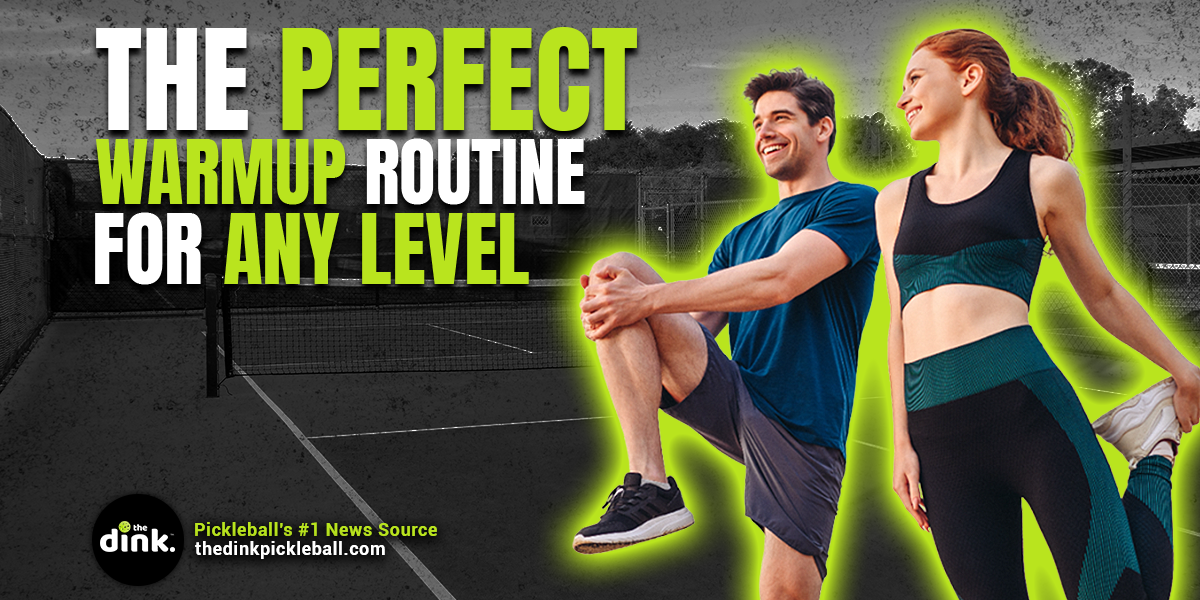
Proper warm-up and cool-down routines
Warming up before a game and cooling down afterward are crucial for preventing injuries and maximizing performance. To prepare your body, spend at least 10 minutes doing light cardio and dynamic stretches.
Post-game, focus on static stretches to help muscles recover. Maybe even invest in a Therabody massage gun to help you recover more quickly.

Improve your technique to reduce the risk of injury
Improving technique can not only improve your pickleball game, but it can help prevent injuries as well.
Work on proper footwork, grip, and swing techniques to ensure you're not putting added strain on different parts of your body or causing problems that could easily be prevented.
Taking lessons can help you improve all areas of your game and keep you on the courts longer.
If hurt, take a day (or two) off from pickleball
When in doubt, take a time out. If something is nagging you or you're experiencing unexpected pains, take a day or two off from pickleball to recover.
It may be frustrating, especially if you're used to playing multiple times a week, but if you hurt yourself further, you could miss several weeks or months.
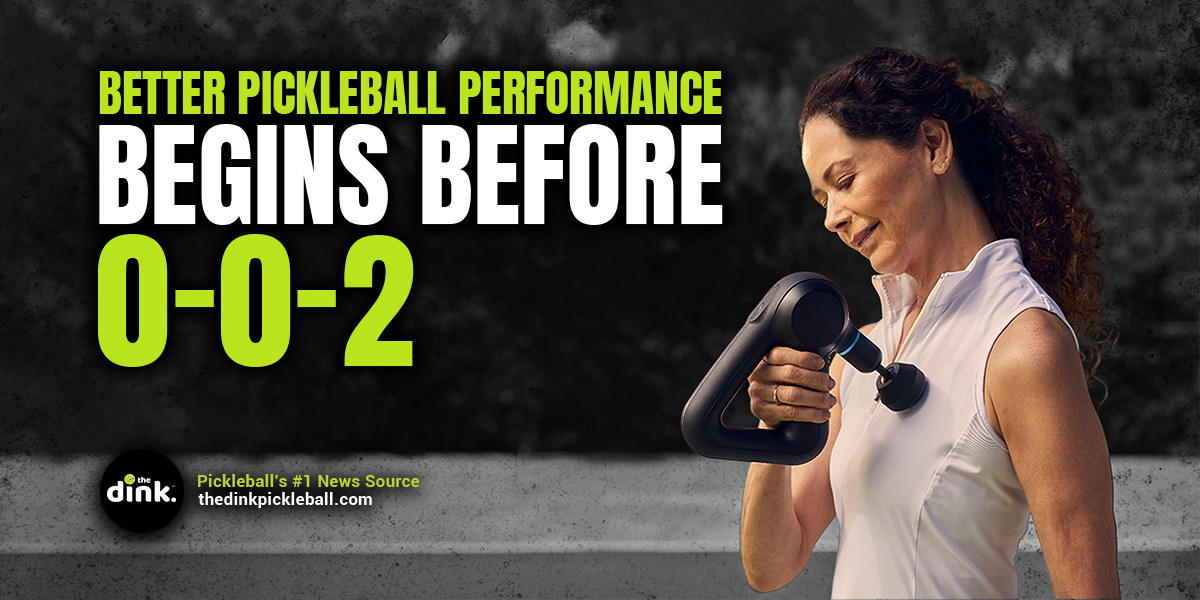
Combine pickleball with other forms of exercise
No matter what sport you play, there are always ways to round out your fitness by incorporating other forms of exercise.
For example, you can add a strength-training regimen to gain more muscle or yoga to enhance your flexibility.

Increasing those areas of your fitness will also help you improve your pickleball game and may also help you prevent injury.
Get out and play
For many, pickleball is more than just a game; it’s a powerful tool for maintaining and improving physical and mental health. Whether you’re a seasoned athlete or a fitness newbie, pickleball offers a fun, engaging way to stay active.
With its myriad of health benefits, community spirit, and potential for lifelong enjoyment, it’s no wonder pickleball is continuously growing in popularity.
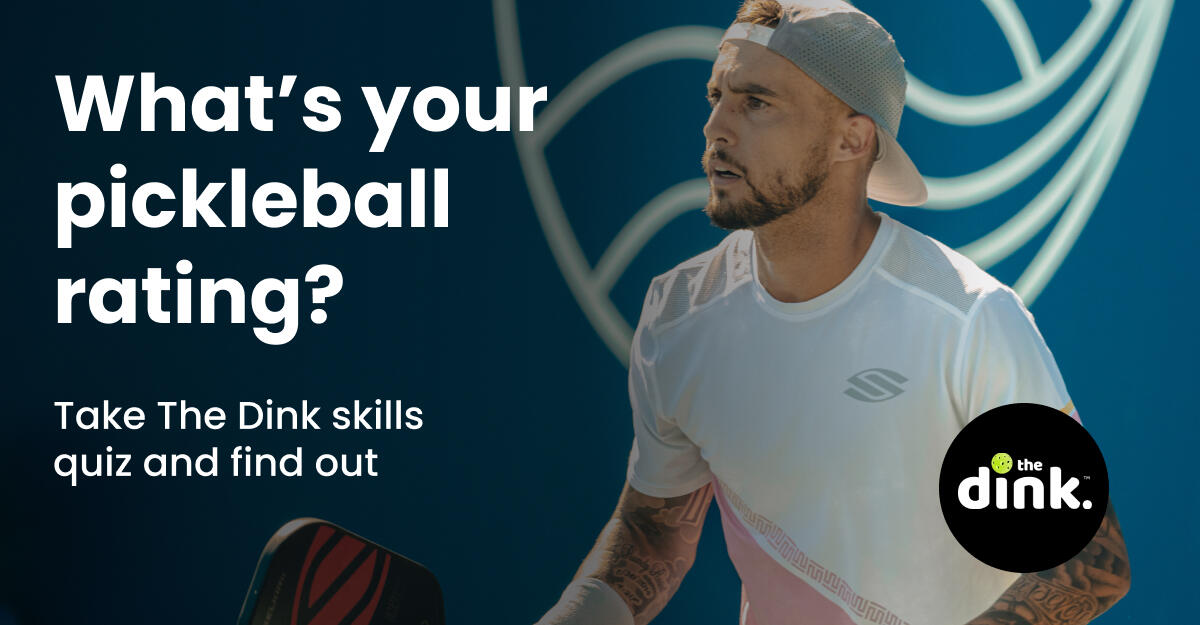

Love Pickleball? Join 100k+ readers for free weekly tips, news & gear deals.
Subscribe to The DinkGet 15% off pickleball gear at Midwest Raquet Sports




